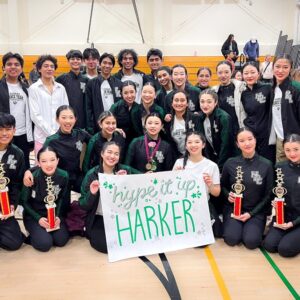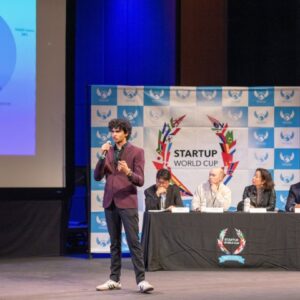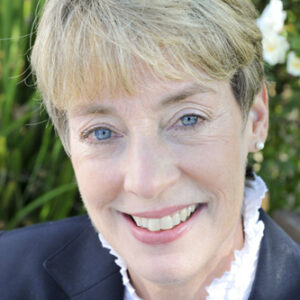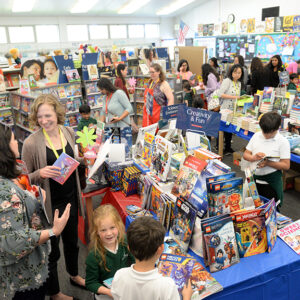Reprinted from the Harker QuarterlyMarch 2010 issue
The unwary might be fooled by the tranquil spaces that are the Harker libraries – but make no mistake: momentous changes are underfoot schoolwide.
Harker library director Enid Davis has kept the department atop the morphing information world all along, but the addition of several features have resulted in a watershed year for all library users, including the construction of a new library on the upper school campus.
The new building will come in at 3,803 square feet – an 89 percent increase over the previous library space – with a comfortable reading area, a separate classroom equipped with eBeam technology, expanded study tables with lighting and outlets, a print/scan/copy center, increased shelving, enhanced wireless connectivity and a security system to keep it all safe.
With the opening of the new upper school library, all three campuses will enjoy wireless learning spaces with ceiling mounted projector systems. Other changes this year include:
• streamlining of the library’s Web site design featuring customized resources matched to age and curricula at each division;
• the addition of a proxy server, enabling single user login for all 80-plus subscription databases around the clock;
• the addition of Questia, an electronic library containing nearly 30,000 full textbooks with robust tools for personalized note-taking;
• significant growth of Harker’s eBook collection, including supplementary resources for class projects which necessitate simultaneous use;
• online catalogue makeover to increase user access including the ability to add book reviews, and the addition of cover art to books’ listings; and
• expanded use of NoodleBib, an online tool that allows students to collect, organize and synthesize research in personalized accounts, across grade levels and disciplines.
Connecting users with information is the primary job of Harker’s librarians – a job that’s become both easier and more difficult in a Web 2.0 world. Easier because information abounds; more difficult because, well, information abounds, and sifting through the chaff to find value can be an overwhelming task for children, teens and adults alike.
“Our Internet age has made the information explosion possible,” explains middle school librarian Bernie Morrissey. “Libraries have become more important than ever. In many cases, a librarian can provide the magnet that makes the perfect needle jump out of its haystack.”
Dramatic change can be disconcerting, but Davis’ creation of the Information Literacy committees four years ago has made Harker’s transitions nearly seamless. The committees, which meet regularly on each campus, allow teachers to voice information concerns and share successes with library professionals and instructional technologists, thus serving as a crucible for innovation to address concerns and replicate successes.
As a result, Harker teachers have been taking greater advantage of professional librarians at all levels to help their students navigate through the information deluge. Teacher librarian collaboration projects have increased significantly, making Harker’s information professionals regular fixtures in kindergarten and Gr. 1 classrooms, in addition to the regularly scheduled library instruction K-Gr. 4.
“The most important contribution we can make is to teach faculty and students how to access, evaluate and synthesize all the information pouring over our heads from an infinite digital sky,” said Davis
Staying in front of technology and the changes it causes in educational philosophy can be challenging, but Harker librarians have developed a reputation as leaders in their field. This fall Davis was invited to speak at the BayNet Librarian Conference, and librarians Kathy Clark, Lauri Vaughan, Smith and Morrissey all presented at the Harker Teacher Tech Institute last June.
In January, Vaughan and Smith were keynote speakers at a regional conference of independent school librarians. This month Smith will present with Donna Gilbert, upper school history department chair, on their collaborative efforts at the California Association of Independent Schools conference at Campbell Hall in North Hollywood.
“The role of school libraries has expanded,” said Smith. “They are important places for students to gather for collaboration and learning, but they also represent portals, both physical and virtual, to new resources, tools and technologies. The tools and technologies will change, but libraries as intellectual hubs of schools and communities – as learning commons – will outlive us all!”








